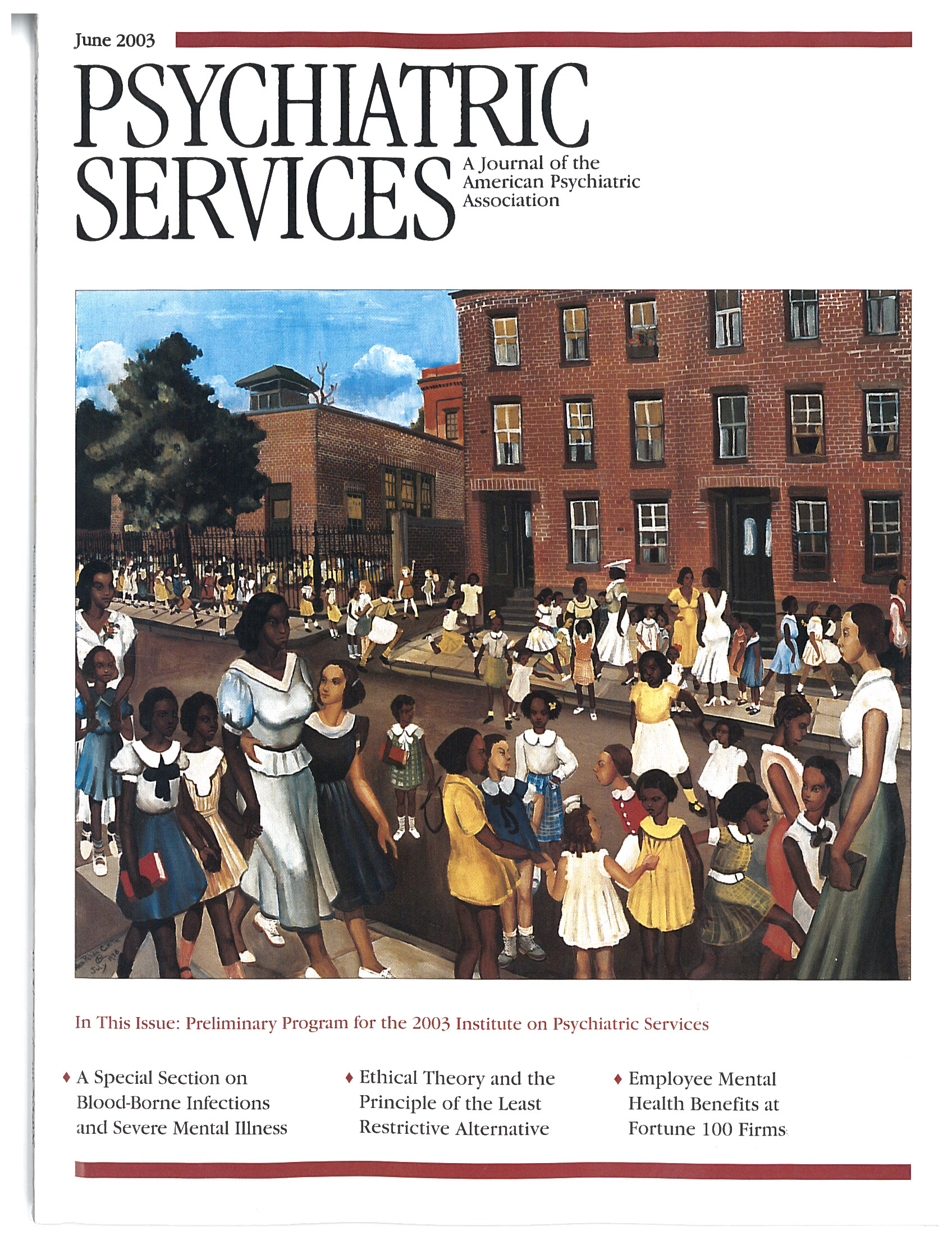Clinical Care of Veterans Seeking Compensation
To the Editor: We read with interest the study by Freuh and his colleagues in the January issue (1), which found overreporting of symptoms among compensation-seeking veterans who were being evaluated for combat-related posttraumatic stress disorder (PTSD). We would like to draw further attention to the impact that overreporting of symptoms and the compensation-seeking process may have on delivery of clinical care to veterans with combat-related PTSD.
After a claim for a service-connected disability is filed, the Department of Veterans Affairs (VA) gives claimants a detailed list of the psychiatric symptoms that correspond to each level of monetary compensation. A patient who is subsequently denied disability payments or who is given a rating of less than 100 percent (full disability)—and who initially may have reported partial response to a first-line-antidepressant trial—may on a return visit to the clinic report psychotic symptoms, suicidal ideation, or frequent panic attacks that were not present during clinical encounters before the disability ruling was made. Our experience is that VA clinicians are not infrequently treating overreported symptoms or the distress of the compensation-seeking process, which has contributed to the negative perception of clinicians treating this population (2).
An example of this phenomenon is a 58-year-old Vietnam veteran who participated in both outpatient and domiciliary PTSD programs for approximately two years while his service-connected disability claim was being appealed and adjudicated. During this time he had trials of sertraline, nefazadone, bupropion, venlafaxine with buspirone augmentation, nortriptyline, imipramine, and mirtazapine, with trazodone or zolpidem used as a hypnotic agent. At the time that electroconvulsive therapy (ECT) was being recommended for his refractory depression, the level of his disability compensation was increased. Abruptly he reported much less distress. ECT was not scheduled, and he has reported symptom stability since that time.
Although aggressive treatment of psychosis and comorbid severe depression is certainly warranted in this patient population, the side-effect burden of polypharmacy regimens needs to be considered. Clinicians should ensure that prescribed medications target specific symptoms. However, such targeting may be difficult, because these patients frequently have comorbid somatic illnesses (3), have complicated pharmacotherapy regimens prescribed, and may be exaggerating certain symptoms to increase their disability compensation. We recently reviewed the pharmacotherapy regimens of 409 patients referred to our domiciliary-based PTSD program between 1997 and 2000. On average, patients were taking 7.4 medications; between 1999 and 2000, about 20 percent of patients received antipsychotic medications.
We recommend frank discussion of the level of PTSD symptoms and the effect of the compensation-seeking process on symptom reporting at the initial visit, at follow-up visits, and during periods of crisis management. This problem is not limited to the VA system; a recent surge has been noted in claims for Social Security Disability Income for psychiatric disorders (4,5). We look forward to the results of studies that are currently under way at the VA to examine the relationship between the compensation process and service use.
The authors are affiliated with the PTSD section of the mental health service line in the Central Arkansas Veterans Healthcare System (VISN 16 MIRECC) and the department of psychiatry at the University of Arkansas for Medical Sciences in Little Rock.
1. Frueh BC, Elhai JD, Gold PB, et al: Disability compensation seeking among veterans evaluated for posttraumatic stress disorder. Psychiatric Services 54:84-91, 2003Link, Google Scholar
2. Sayer NA, Thuras P: The influence of patients' compensation-seeking status on the perception of Veterans Affairs clinicians. Psychiatric Services 53:210-212, 2002Link, Google Scholar
3. Schnurr PP, Friedman MJ, Sengupta A, et al: PTSD and utilization of medical treatment services among male Vietnam veterans. Journal of Nervous and Mental Disease 188:496-504, 2000Crossref, Medline, Google Scholar
4. Leo RJ: Social security disability and psychiatric illness. Psychiatric Annals 32:279-280, 2002Crossref, Google Scholar
5. Charting the Future of Social Security's Disability Programs: The Need for Fundamental Change. Social Security Advisory Board. Available at www.ssab.gov/reports.html, Jan 2001Google Scholar



